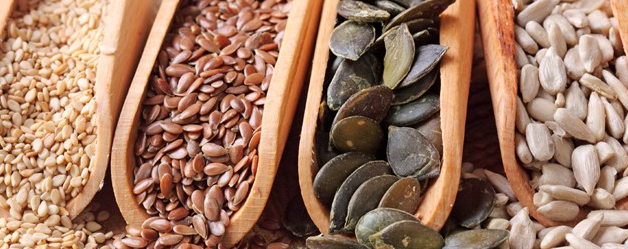Seeds, often overlooked in daily nutrition, pack a powerful punch of nutrients and health benefits that can significantly enhance overall well-being. Whether sprinkled on salads, blended into smoothies, or enjoyed as a crunchy snack, incorporating seeds into your diet can offer a range of positive effects on health. Here’s a look at how various seeds can contribute to your nutritional intake and promote wellness:
1. Rich Sources of Essential Nutrients:
- Omega-3 Fatty Acids: Seeds like chia, flax, and hemp seeds are excellent sources of omega-3 fatty acids, crucial for heart health, brain function, and reducing inflammation.
- Protein: Seeds such as pumpkin seeds (pepitas) and sunflower seeds provide a plant-based source of protein, essential for muscle repair, immune function, and overall cellular health.
- Vitamins and Minerals: Seeds are often rich in vitamins (such as vitamin E in sunflower seeds) and minerals (like magnesium in sesame seeds), supporting various bodily functions from bone health to skin integrity.

High-Protein Seeds
2. Fiber-Rich Additions:
- Digestive Health: Seeds like chia seeds and flaxseeds are high in dietary fiber, promoting healthy digestion and regular bowel movements. Fiber also helps to maintain a feeling of fullness, aiding in weight management.
- Blood Sugar Control: The soluble fiber found in seeds can help regulate blood sugar levels, making them beneficial for individuals with diabetes or those looking to stabilize energy levels throughout the day.
3. Antioxidant Powerhouses:
- Free Radical Defense: Many seeds, including sunflower seeds and sesame seeds, contain antioxidants such as vitamin E, selenium, and lignans. These compounds help neutralize free radicals in the body, protecting cells from oxidative damage and lowering the risk of chronic diseases.
4. Supportive of Heart Health:
- Healthy Fats: Seeds like pumpkin seeds and flaxseeds are rich in monounsaturated and polyunsaturated fats, which can help lower cholesterol levels and reduce the risk of cardiovascular diseases.
- Blood Pressure Regulation: Potassium-rich seeds, such as pumpkin seeds and sunflower seeds, contribute to maintaining healthy blood pressure levels, crucial for heart health.
5. Versatility and Easy Incorporation:
- Diverse Uses: Seeds can be easily incorporated into various meals and snacks, adding texture, flavor, and nutritional benefits. Sprinkle them on yogurt, blend them into smoothies, bake them into bread or muffins, or simply enjoy them as a crunchy snack.
- Plant-Based Protein: For vegetarians and vegans, seeds provide a valuable source of plant-based protein and essential nutrients that are often lacking in meat-free diets.
Conclusion: Incorporating seeds into your diet can be a simple yet impact way to enhance your nutritional intake and support overall health. From providing essential fatty acids and fiber to boosting antioxidant levels and supporting heart health, seeds offer a wide array of benefits that contribute to a balanced and nourishing diet. By exploring different types of seeds and incorporating them creatively into your meals, you can reap the diverse health benefits they have to offer for a healthier, more vibrant life.
